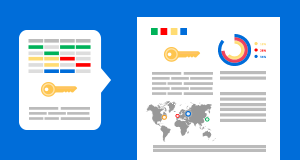Google has announced “New markup for multilingual content” which has sigificant consequences for anyone running websites in more than one language or in more than one country. This includes those with different versions for English for the US and UK and also anyone running ONE version of English but using it in multiple countries.
The blog post announcing the changes is here googlewebmastercentral.blogspot.com/2011/12/new-markup-for-multilingual-content.html.
The background to this is that enormous problems – and significant cost – have been caused to users and especially users of multilingual dot com websites mainly. The core problem is that if you are serving the same language content to multiple countries, you cannot easily do this without causing duplication problems resulting in the wrong users seeing the wrong content. The same problems apply much less to users of local domains or ccTLDs.
The new markup brings together features of the Hreflang link element and template management in a new format which many users will find complex to implement.
These uses apply principally to users of dot coms. If you are thinking of localising multilingual websites, do not be confused. These changes do not mean that you should not use local domains. They mean that if you are in a mess with your dot com and you really cannot move to a local domain – here is a workaround – and a somewhat messy one, sadly.
A full analysis of the changes is available to Insights Subscribers on GlobalCentral.net. To become an Insights Subscriber, you need to buy a ticket to an International Search Summit event anywhere in the world at any price giving access to the system for 12 months after the event you book OR work with an agency which provides access to its clients.
Andy Atkins-Kruger
Latest posts by Andy Atkins-Kruger (see all)
- Launching our new concept – Webcertain In-house! - July 26, 2019
- Yes, the robots are here and they’re running Google Ads! - April 10, 2019
- Be prepared: A personal message from Webcertain’s CEO - May 15, 2018





[…] Google Changes The Rules For Multilingual Websites – But Will It Help?, http://www.multilingual-search.com […]